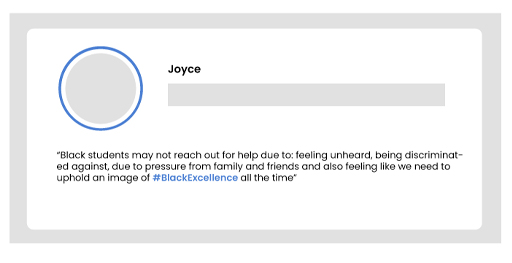1.2 Racist stigma
Stigma related to mental health may be particularly strongly experienced and felt among learners from specific racial backgrounds. For example, the UK’s ‘Black Students Talk’ peer support group, part of ‘Black People Talk’ social enterprise, has highlighted how stigma can be keenly felt among Black learners and how this can prevent them from seeking out help (Black People Talk, 2023). Here is an example of a summary social media post released in 2021 as part of Mental Health Awareness Month that clearly describes this lived experience of stigma.
Other ethnically diverse learners have reported similar experiences of stigma and its impact on help seeking (Maeshima and Parent, 2022).
This section has shown you why the idea that ‘it is only a joke’ is not OK for learners experiencing stigma and has put the case forward that such beliefs and behaviours need to be challenged within learning environments. You have also been prompted to return to the concept of intersectionality and to consider how different elements of someone’s identity can not only impact their wellbeing, but also their capacity to seek help. The next sections will explore how you can challenge stigma in your setting and support your learners’ help-seeking behaviour.


